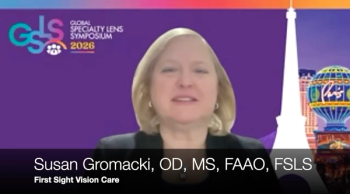
Selling a practice can be risky business
Just about everywhere you look is a buyer's market. Great deals are being offered any almost anything, including optometry practices.
Just about everywhere you look is a buyer's market. Great deals are being offered for houses, cars, furniture, and almost anything else you can imagine-even optometry practices.
Among the first mistake sellers make is going solo, said Richard S. Kattouf, OD, DOS, owner of Kattouf Consulting Services in Bonita Springs, FL. Dr. Kattouf has worked with hundreds of retiring optometrists over the past 20 years.
Among the first tasks brokers perform is to help optometrists turn their practice into saleable condition.
"There are things you can do to get your practice in much better shape where you can earn a much higher value for it," he said. "Many optometrists aren't aware of this and need to bring it up to a saleable level before hunting for a partner or associate to take over."
For example, there may be a specialty that few, if any, optometrists in your community perform, such as treating diabetics or individuals with low vision. Dr. Kattouf said specialized services typically produce a much higher net-to-gross income than general optometry, so if you start offering such services, your practice will be worth more when selling it several years from now.
So, don't wait until you're 6 months away from retirement to strengthen your practice, or until you develop health issues that force you to put a "For Sale" sign on the front door. Develop a plan at age 50, even 45, he said. Consider your community's changing demographics and current or future service gaps. How can your practice fill them? Explore ways to create as much value as you can for your practice while you're still actively working.
Put everything in writing
Dr. Kattouf said he is amazed at the casual approach some optometrists embrace during the sales process, whether they're the seller or buyer.
"It's unbelievable that there are still handshake agreements," he said, referring to optometrists who do business through verbal transactions, not written agreements. "Many times, they're going to get their hand cut off."
There are dozens of reasons why, ranging from forgotten promises to changing circumstances or interests. Without a written contract or agreement, he said just about anything can happen and does, pointing to one optometrist who joined a senior optometrist's practice as an associate with a buy-in commitment after 3 years even though the practice hadn't recently been appraised. Worse yet, they never signed a contract or restrictive covenant. In the end, the associate opened a practice one-quarter of a mile away because the senior optometrist wouldn't uphold his end of their bargain. He eventually sold his practice for a fraction of what the associate offered.
Dr. Kattouf explained that written agreements define specific terms, such as non-compete clauses, compensation packages, work schedules, perks, health insurance, retirement programs, continuing education, vacation days, paid time off, and paid holidays.
Some sellers reveal their cards, Dr. Kattouf said. They're so anxious to find a buyer, they'll verbally agree to sell their practice with no money down and serve as the banker. Others mention a sale price before having their practice appraised or accept a refundable down payment, hanging themselves out to dry when buyers change their mind.
"A buyer could say 18 months later, 'This is a lot of work, I want my money back,'" he said. "The seller shouldn't be put in a position of buying the practice back, so buyers must have a financial obligation that if they leave, their down payment and all of their monthly payments are gone. Otherwise, the seller just lost 18 months of being on the market and it becomes a nasty situation."
Dr. Kattouf said each sale agreement is like a canvas with no painting. The terms and conditions of a practice's sale are unique to both the buyer and seller, which is why he never hands out boilerplate buy-sell agreements to optometrists who often request them.
"We're in a significant, deep, buyer's market," said Dr. Kattouf. "Too many optometrists wait too long, don't get professional help, then something happens health-wise. The earlier you develop an exit strategy, the better."
FYI
Richard S. Kattouf, OD, DOS
Phone: 330/219-6320
E-mail:
Dr. Kattouf owns Kattouf Consulting Services.
Newsletter
Want more insights like this? Subscribe to Optometry Times and get clinical pearls and practice tips delivered straight to your inbox.















































